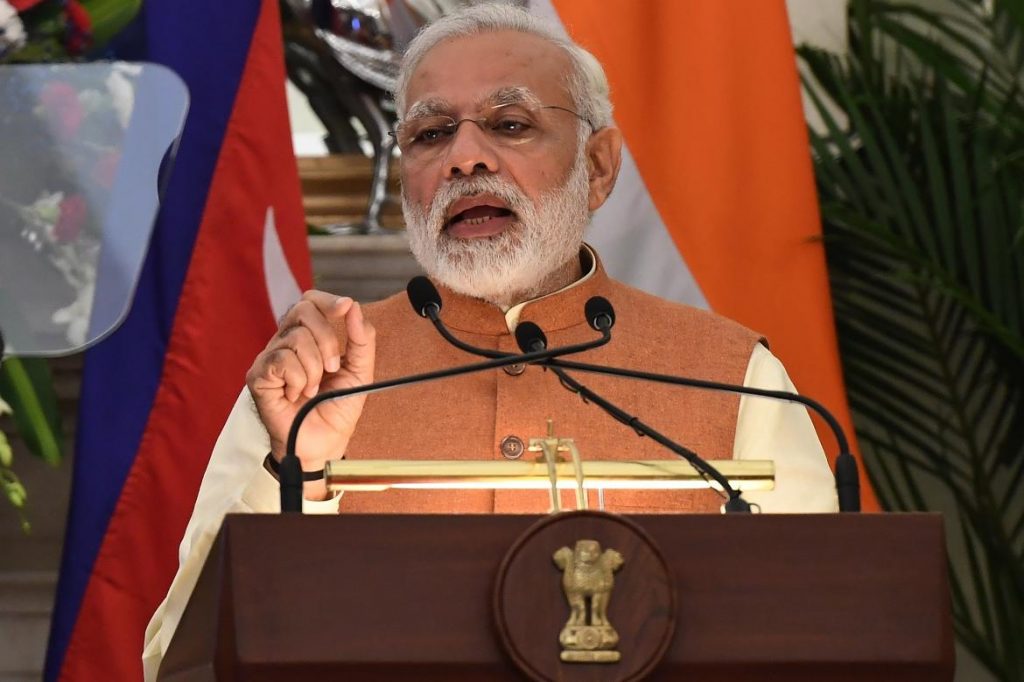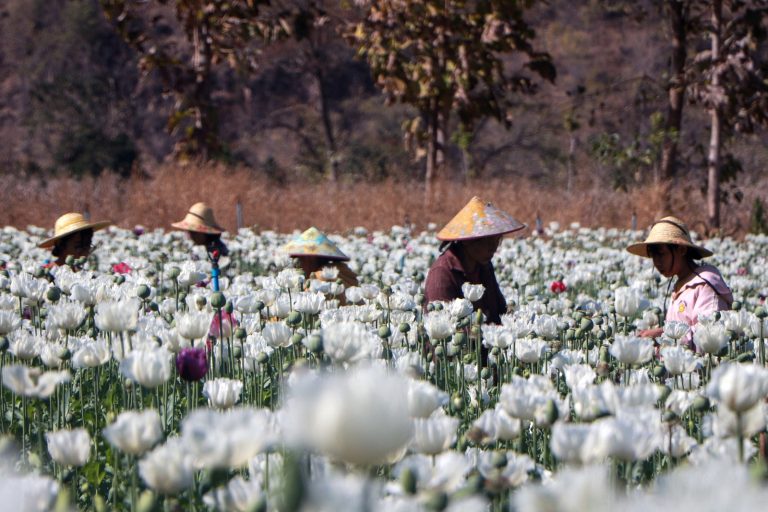By HTUN KHAING AND NYAN HLAING LYNN | FRONTIER
YANGON & NAY PYI TAW — Traders are warning of a looming catastrophe in the bean market after India shut the door on imports from Myanmar. Amid plummeting prices, they have called on the government to guarantee the purchase of beans under cultivation and take the issue up with the Indian government.
Earlier this month, India introduced restrictions on several types of beans, apparently to shore up prices for its local farmers after a strong harvest.
The decision has threatened Myanmar’s US$1-billion-plus beans and pulses sector, which exports the majority of its product to India and accounts for around 10 percent of the country’s total exports.
Myanmar cultivates roughly 11 million acres of beans and pulses and is the world’s third-largest exporter globally; to July 18, it had already wracked up exports of $490 million this fiscal year, the majority to India.
Support more independent journalism like this. Sign up to be a Frontier member.
In the wake of the announcements, the local price of both pigeon pea and black gram has collapsed by half to two thirds, and an estimated 400,000 tonnes of beans that were meant for the Indian market are stuck in warehouses.
At a meeting in Nay Pyi Taw on August 25, Myanmar traders urged Minister for Commerce Dr Than Myint to introduce measures to protect farmers and traders from the fallout from India’s decision.
They warned that farmers who depend on beans as a cash crop are facing the prospect of selling their product at a loss unless urgent measures are taken.
The traders demanded that the government guarantee that it will purchase beans that are nearing harvest at a fair price.
“In some places like Magway Region, paddy is not grown at all – just beans and sesame. Farmers there are facing huge problems,” said U Sein Aye Maung, chairman of Magwe commodity exchange.
Than Myint said the government was trying to negotiate a solution with India but had so far received no response.
“We have informed the Indian embassy to Myanmar about it and demanded the embassy reply as to what the Indian government will do for the farmers in Myanmar who are suffering,” he said.
The bean sector is vulnerable because more than 80 percent of its exports go to India, said Dr Aung Thu, the Minister for Agriculture, Livestock and Irrigation. He suggested traders seek new markets.
But Than Myint said other markets were not interested in Myanmar beans because of their low quality.
Persuading India to reopen its markets to Myanmar beans seems the only short-term solution. Aung Thu said State Counsellor Daw Aung San Suu Kyi would take the issue up with Indian Prime Minister Narendra Modi when he visits in early September.
“This issue will be discussed,” he said.
Millions of farmers who typically would be preparing to sow beans in the coming months will be waiting the outcome of the talks anxiously.
“After the harvest of paddy, bean is normally grown,” said U Ohn Sein, chairman of Yangon’s Bayinnaung Commodity Exchange. “So farmers have one and a half or two months left.”
On August 5, India’s Ministry of Commerce and Industry announced that it was restricting imports of pigeon pea to 200,000 tonnes a year. This effectively put the brakes on all imports, as the country had already bought in excess of 200,000 tonnes since the start of India’s fiscal year on April 1.
But there was more bad news to come for Myanmar farmers, though. On August 21, India added black gram and green gram to its list of restricted imports, limiting total imports to 300,000 tonnes a year. Again, this effectively closed the door on any more imports in 2017-18.







